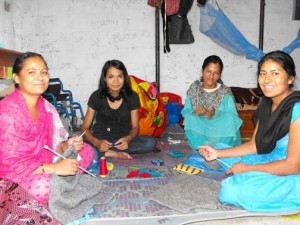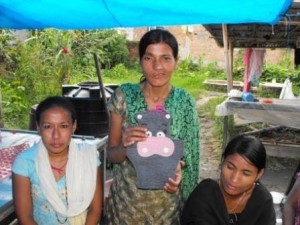Disability Rights Promotion International expresses its solidarity with women with disabilities around the world this International Women’s Day
8 March 2015
Today on International Women’s Day, Disability Rights Promotion
International (DRPI) celebrates the creativity, diversity and power that the approximately 300 million women and girls with disabilities [1] around the world have shown in the face of social, political and economic marginalization.

Women with disabilities face multiple layers of discrimination; they are discriminated against based on their disability as well as based on their gender. In addition, women with disabilities constitute a diverse and heterogeneous group – many of whom may also face additional prejudice and stigma due to their race, ethnicity, sexual preference, gender identity and other aspects of who they are and how they live. This multiple discrimination is explicitly recognized in the UN Convention on the Rights of People with Disabilities and indeed obligates State parties to “take all appropriate measures to ensure the full development, advancement and empowerment of women.”
Notwithstanding this commitment, these layers of discrimination have led to the well-documented and extreme levels exclusion and systemic rights violations that women with disabilities face globally. [2] We know that:
- Women with disabilities are at increased risk of being sicker, poorer, and more socially isolated than either men with disabilities or non-disabled women (ILO)
- Only 25% of women with disabilities are in the workforce worldwide (UN)
- The literacy rate for people with disabilities is 3%, with the literacy rate for women and girls with disabilities as low as 1% (UNDP)
- Women with disabilities face unique challenges in preventing HIV infection, due to the heightened risk of gender-based violence, lack of access to reproductive health care services, and low awareness of mother-to-child HIV transmission (World Bank)
- Women with disabilities are even more likely to be victims of violence or rape than non-disabled women, and they are less likely to be able to obtain police intervention, legal protection, or prophylactic care (World Bank)

DRPI works to advance the rights of all people with disabilities around the world, including and especially the rights of women with disabilities. We routinely witness the leadership of women with disabilities and the ingenuity and passion they bring not only to the fight for rights, but to all of the work they do. Their contribution, whether in the domestic , public or private sphere, is not only valuable—it is essential.
Today, on International Women’s Day, we celebrate the hard work, tenacity, audacity and spirit of the diverse women with disabilities around the world fighting for their rights and demanding justice.
Learn more about the rights of women with disabilities by reading DRPI’s recent report: Are We Moving Forward? Regional Study on the Rights of Women with Disabilities in the Middle East
If you would like to learn more about DRPI’s work and disability rights please visit our website: http://drpi.research.yorku.ca/.
You can also follow us on Facebook and Twitter @DRPI_global
******
[1] See http://www.usaid.gov/what-we-do/gender-equality-and-womens-empowerment/women-disabilities
[2] See the following pages for information on the exclusion and violation of the rights of women with disabilities:
- http://web.worldbank.org/WBSITE/EXTERNAL/TOPICS/EXTSOCIALPROTECTION/EXTDISABILITY/0,,contentMDK:20193528~menuPK:418895~pagePK:148956~piPK:216618~theSitePK:282699,00.html
- http://www.womenlobby.org/news/european-international-news/article/women-more-prone-to-disability?lang=fr
- http://www.hrw.org/sites/default/files/related_material/0912_disabilities_brochure_0.pdf
- http://www.wikigender.org/index.php/Women_and_Disability#The_situation_at_a_glance